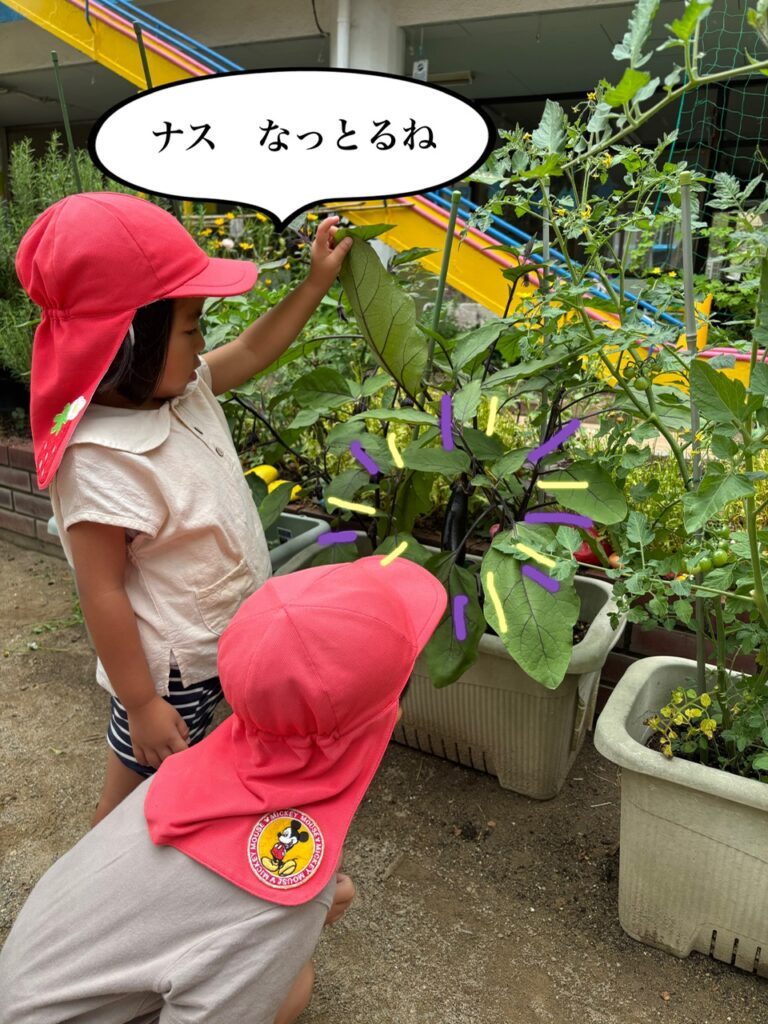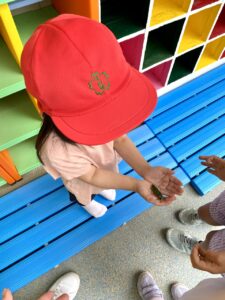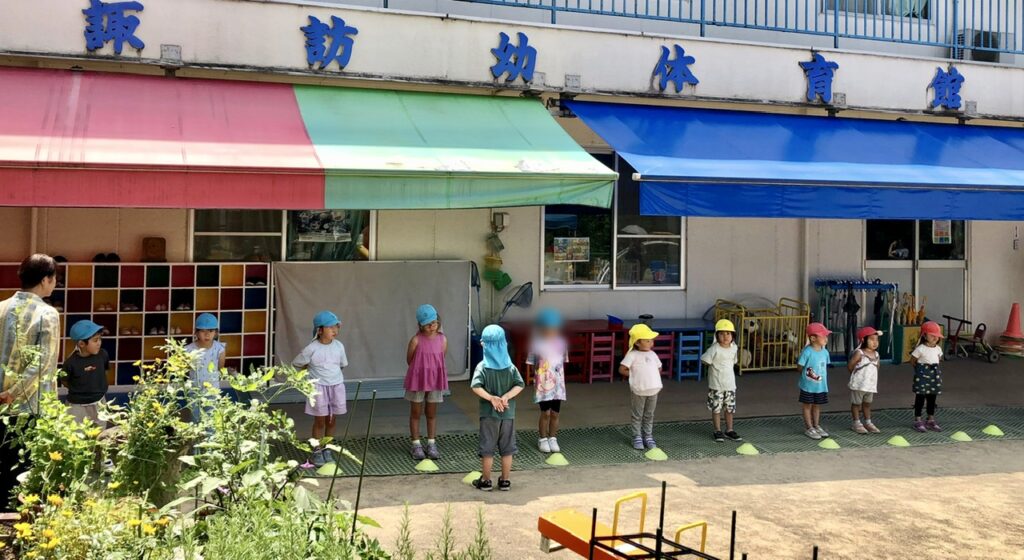









🍆
プランターで育てているナスをみていて、
大きな葉っぱの陰に、実を見つけた子どもたち。
「ほら、見て!おおきくなってるよ!」と嬉しそうに教えてくれました。
そろそろ、このナスも収穫できそうですね。
*
*
子どもたちが食べ物の育ちに興味を持ってくれています。
*
*
*

*
*

*
*
*
ピーマン🫑も収穫しましょうね


園庭で、背中に縞模様があり、🟢緑色でピカピカ✨に光る「虫」を見つけました。
子どもたちは興味津々。
そっと手のひらにのせて──
👦「動いてるね」
👦「怖い?」
🧒「ちょっと怖い…」
🧒「私は怖くな~いもん」
「あ、タマムシだ!」
「手がくすぐったい」
「僕ものせてみたい」
虫を囲んで、子どもたちの間に、にぎやかなやりとりが広がっていました。
幼稚園にはいろいろな種類の虫が遊びに来ますが、
「タマムシ」に出会えるのは、珍しいです。
園庭での出会いから自然に関心をもち、
自分の思いを友達と伝え合う体験や自然の中での発見は、
子どもたちに驚きをもたらし、
観察する力や表現する力につながっていきます。
*
*

*
こうした日々の積み重ねが、🍃自然への優しさや学び🍃にもなります。
「子どもたちが身近な自然とともに生活できること」が、
💓すわ幼稚園の大きな魅力です💓
*
*
*


今年度初めての保育参観がありました。
新学期が始まって3ヶ月。
子どもたちは「今日はおうちの人が見に来るんだ!」と、どことなくそわそわしていました。
本日の目的は、子どもたちの普段の様子を見ていただくこと。
朝の会の様子や教室に入る姿、歌をうたうところ、先生のお話を聞く姿などを、ゆっくりとご覧いただきました。
参観後の保護者アンケートでは、あたたかいコメントをたくさんいただき、私たちも嬉しく思いました。
💬「お友だちと話し合いながら活動する姿が嬉しかったです」
💬「子どもたちの力を感じられて良かったです」
💬「少人数ならではのまとまりがあって素敵だと思いました」
保護者の皆さまと一緒に、これからも子どもたちの成長を後押ししていきたいと思います。
さて、今日はちょっとしたハプニングもありました。
朝の会を始めようと音楽が流れ、子どもたちが整列したちょうどその時――
岐阜市の広報がちょうど流れてきたのです。
すると子どもたちは、おしゃべりをやめて放送に耳を傾け、自然と静かになりました。
普段は園庭に整列をして朝の会を行っていますが、「暑い時は日陰で朝の会をする」ようにしています。
この日も、広報をきっかけに子ども達が速やかに軒下に移動する姿が見られました。
園が、日常的に状況に応じ臨機応変に対応していること、
それに従って行動できる子どもたちの様子なども見ていただけ
保護者の安心につながったのではないかと思います。
保護者の皆さまには、お忙しい中ご参観いただきありがとうございました。
